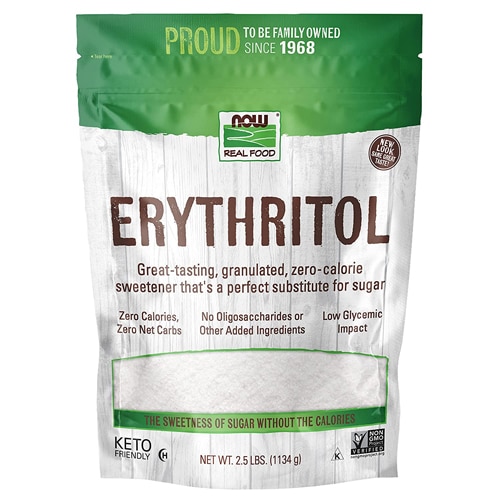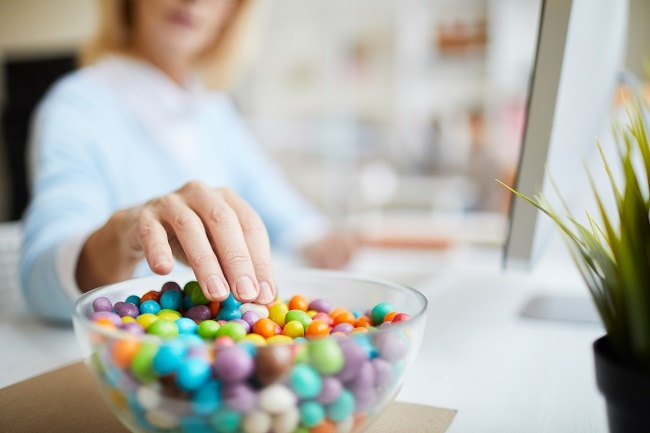A longstanding nutritional rule of thumb is to choose foods with short ingredient labels that include things you know or at least can pronounce. But that's not the whole story.
There's no quibbling over a stalk of fresh, organic broccoli (a whole food, no ingredient list required) being better for you than a can of broccoli and cheddar soup. What we're talking about here are weird-sounding words listed in everything from soup to bread to nut milks.
Here's a short go-to list of additives that frequently appear in food labels. It's focused mainly on those that are fine to eat, but you'll find a few common offenders. The list comes largely from the Center for Science in the Public Interest, an outstanding non-profit watchdog and consumer-advocacy group whose mission is making sure what you eat is safe and healthy.
As far as experts know or tests show, these additives are safe. There are nearly 100 in all.
8 food additives to consume without worry
1. Acetic acid
This is the stuff that makes vinegar taste and smell sharp. It's used as a preservative or to make food tart.
2. Alpha tocopherol
Another way to say vitamin E, and usually used to stop oil from going rancid.
3. Amylase
Enzyme that converts starch to sugar and occurs naturally in plants and saliva, for example. It helps yeast ferment and improves the quality of bread products.
4. Cysteine
It's an amino acid, and so occurs naturally in foods that have protein (though you won't find it in food labels because of that quality alone). It's also added to some foods to prevent oxygen from destroying vitamin C and to reduce the mixing time for dough (that's when you'll find it in the label).
5. Malic acid
Apples have lots of this. It's sometimes used to flavor drinks, ice cream and preserves, to name a few.
6. Oligofructose
This is a soluble fiber that promotes growth of good bacteria in your gut and has about half as many calories per gram as fructose or other sugars. Wow! Oligofructose comes from sucrose or is extracted from chicory root and often is used in frozen desserts, cookies and energy bars.
7. Papain
Papain is an enzyme that comes from papaya. It can be used to soften meat’s tough muscle fibers.
8. Sodium diacetate
It's a salt that comes from acetic acid (see #1 one list). Used as a preservative or for its flavor, it helps prevent mold and bacteria from growing and is used in baked goods, snack foods and soups, to name a few.
Food additives to avoid if possible
There's debate over these additives, and we need more tests to know their effects.
It comes from seaweed, but don't be deceived by its innocuous provenance. The FDA and World Health Organization say that food-grade carrageenan doesn't pose a cancer risk. Still, food-grade carrageenan has small amounts of “degraded” carrageenan, and a little more probably forms in the stomach’s acidic conditions, the Center for Science in the Public Interest notes. The WHO says degraded carrageenan is “possibly carcinogenic in humans.” Carrageenan is used in place of fat or as a thickening agent in nut milks, ice cream, sorbet, frozen desserts, chocolate milk, yogurt, cottage cheese and salad dressing, to name several.
- Gums: Arabic, Gellan, Guar, Locust Bean, Xanthan
They come from natural sources, such as trees or bacteria. They are probably safe but haven’t been tested well, according to the Center for Science in the Public Interest. They are used mainly as thickeners, often in ice cream and salad dressing. The aforementioned gums are those you're most likely to find. Others are furcelleran, ghatti, karaya and tragacanth.
Food additives to keep to a minimum
Too much of this additive isn't good for you.
- Fructose
This can be a confusing one, so that's why it's included. First, oligofructose is in the safe list, above, with a similar name. Second, fructose occurs naturally in fruits and veggies. No matter. Added fructrose isn't healthy for your heart. Same goes for these other sugars: dextrose, sucrose, corn syrup, high fructose corn syrup (they're also in this category!). Honey, date sugar and coconut sugar are considered sugars—but at least they have some redeeming qualities, so if you must have added sugar, choose them instead.
Avoid these food additives entirely
These additives are generally unsafe or have been poorly tested.
- Caramel coloring
This stuff shows up in colas, beer and pre-cooked meats, among other less-than-healthful products. It also can be in soy sauce and Worcestershire sauce. It does what you'd expect, given its name: makes food look richer and darker.
Red 40 is used the most. It's mainly in junk food, but you stay away from that anyway, right?
Yellow 5 is the second most-oft used, mostly in edibles like candy.
Yellow 6 is the third most-oft used—again, mostly in candy, as well as unhealthy baked goods.
Mitra Malek’s reporting and writing have appeared in The Washington Post and USA Today, and she is a contributing editor for Yoga Journal. Connect at mitramalek.com.




